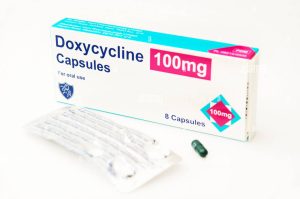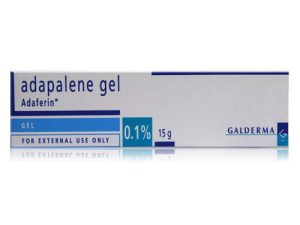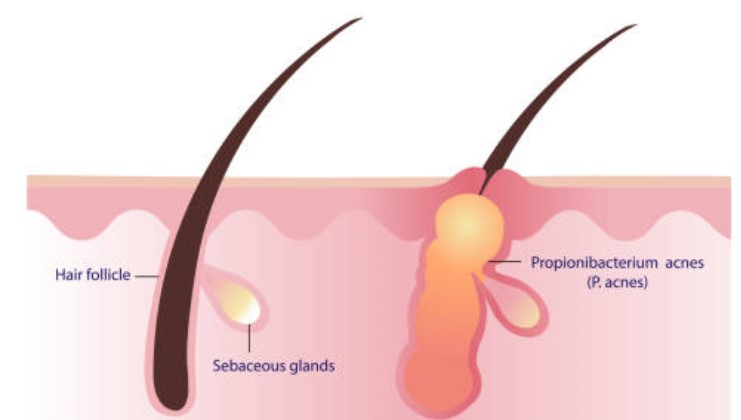Do Steroids cause Acne? This Nissan an age-old question that most beginners ask. The simple answer to this question is Yes and No! That’s right, while anabolic steroids are known to cause side effects with acne being one, not all steroids actually cause this side effect.
However, for those steroids that do instigate the formation of acne, the prevalence of the condition would most likely differ across steroid users.
In this post, we highlight why steroids cause acne, what can be done to prevent steroid-induced acne, possible treatments, the types of steroids that cause acne, and so much more.
Why do steroids cause acne?
The sebaceous or oil glands in your skin and hair roots are typically inflamed when you have acne. Acne vulgaris is the scientific name, although most people just refer to the condition as pimples, spots, or zits. Oil gland inflammation is brought on by the bacterium Propionibacterium acnes in conjunction with other known and unknown conditions.
The symptoms of steroid acne are very similar to those of common acne. However, systemic steroid use is what makes the oil glands vulnerable to infection and inflammation in steroid acne. The steroids that cause steroid acne may be anabolic steroids, bodybuilding supplements or even prescription corticosteroid drugs like prednisone.
A yeast infection of the hair follicles is the root cause of fungal acne, also known as malassezia folliculitis. It can develop naturally or as a result of using oral or injectable steroids, just like acne vulgaris.
Although they can arise at any stage of life, both common and steroid acne most frequently appear during adolescence and young adulthood.
However, note that steroid rosacea, a condition brought on by repeated use of topical corticosteroids, is distinct from steroid acne.

What can you do to prevent steroids from causing acne?
The most obvious way to prevent steroids form dousing acne is to not run a steroid cycle to begin with. Secondly, you can prevent steroid acne by lowering your dosage and running a short steroid cycle. However, sticking with recommended steroid cycles for your cutting or bulking bodybuilding goals is always advised.
Thirdly, an outbreak of steroid acne may be exacerbated by fatty diets, some dairy products, and most especially refined sugar or food and drinks with a high sugar content.
Fourthly, you may prevent acne in general and steroid acne in particular by avoiding cosmetics that contain ingredidients like oleic acid, lauryl alcohol, butyl stearate, vegetable oils, petrolatum and lanolin.
However, while avoiding certain foods and cosmetics may help reduce acne outbreaks, this does not guarantee that your acne will be instantly gone.
What is the best acne treatment for steroid users?
Similar to how acne vulgaris (common acne) is treated, steroid acne is treated with oral antibiotics as well as a variety of topical skin treatments.
Topical antifungals like ketoconazole shampoo or oral antifungals like itraconazole are used to treat steroid-induced fungal acne (malassezia folliculitis).
Antibiotics taken Orally
One of the most recommeded acne treatment for steroid users is oral antibiotics. For severe and some moderate cases of steroid acne, as well as for any case exhibiting scarring, oral antibiotics from the tetracycline group, such as; tetracycline, minocycline and doxycycline are often prescribed.
These antibiotics eliminate the acne-causing bacteria and might also be anti-inflammatory in nature.
However, before you start to see results, it may take four to eight weeks of consistent antibiotic therapy. It may take three to six months for the complete response.

Using Benzoyl Peroxide
Benzoyl peroxide is a common ingredient in over-the-counter remedies for acne. It occasionally goes together with salicylic acid and has excellent antimicrobial properties that helps to eliminate acne-causing germs and lessen irritation.
You should use benzoyl peroxide with prescribed oral antibiotics in severe cases, but where your steroid acne is mild, then using benzoyl peroxide alone should suffice.
Phototherapy
There is some evidence supporting the use of blue and blue-red light phototherapy in the treatment of steroid acne.
Topical Retinoid for Mild Steroid Acne
A topical retinoid, a form of skin preparation, may be prescribed by your doctor in place of oral antibiotics for a mild case. These consist of: Adalpene (Differin), tretinoin (Retin-A, Atralin, Avita), and tazarotene (Tazorac, Avage).
Topical retinoids are vitamin A-based gels, lotions and creams. They function by promoting the growth of wholesome skin cells and minimizing inflammation.

What type of steroid causes acne?
Systemic (inhaled, topical, oral or injectable) steroid medication use may result in steroid acne.
One study suggests that about 50% of those who use anabolic steroids in high doses for bodybuilding get steroid acne. Sustanon, often known as “Sus” and “Deca” are well-known in the bodybuilding community to be the chief culprits frequently behind bodybuilders’ steroid acne.
Acne outbreaks in bodybuilders may also be influenced by high testosterone levels caused by increased exogenous testosterone use.
Researchers suggest that steroid users under the age of 30 years are more susceptible to having steroid acne while persons with lighter skin tone are also more likely to have steroid acne.
The severity of steroid acne may be in part influenced by the amount of steroids used, how long you receive treatment, and how genetically prone you are to developing acne.
Although steroid acne typically develops on the chest, it is not unusual for sufferers to have acne on their backs, face and other parts of their body.
Why do topical steroids cause acne?
There is no definitive explanation as to why androgenic-anabolic steroids raises a person’s propensity to having acne. However, according to a number of studies, steroids may help your body produce TLR2 immune system receptors.
The TLR2 receptors along with the acne causing bacteria on the skin known as Propionibacterium acnes may contribute to an acne breakout in individuals using topical steroids.
How long does steroid acne last?
In truth there is no fixed time for the cycle of steroid acne. Therefore each case of steroid acne is treated specially, as while steroid acne may appear and disappear without treatment in some people, the case may not be the same in others.
While steroid acne may be mild in some bodybuilders, others may experience a severe case of steroid acne. But typically, steroid acne may last for two to three months during and after steroid use and with or without the use of medication.

Are there steroids without side effects?
The effects steroids have on users may vary from person to person for a number of reasons. While one individual may not experience any side effects or may experience mild side effects from using one steroid, another person may be hit by a series of side effects even if both individuals were on the same cycle and dosage plan.
Your genetics and current state of health can play a vital role in determining whether or not you will experience side effects from the use of an anabolic steroid. This is why it is always important to first go for a thorough medical checkup and seek the counsel of a doctor before starting any steroid cycle.
In addition to this, your diet and workout plan could determine if you have side effects or not. Also, you discipline in terms of dosage and cycling is equally important.
If you misuse or abuse steroids, you expose yourself to barrage of side effects. So it is advisable to stick to recommended cycles and dosages at all times.
Final Thoughts
Prednisone and other prescription corticosteroids, as well as some anabolic steroids use in bodybuilding, may cause steroid acne as a side effect.
However, this concern may go away on its own without any form of medication if you stop running an AAS cycle.
Otherwise, the use of topical creams, antifungals or oral antibiotics prescribed by a qualified medical practitioner are some of the best acne treatment to curb and/or remedy the condition.
What’s more, it is advisable to never run any steroid cycle without first consulting with your physician and seeking the expert guidance of an experienced health and fitness specialist or bodybuilder.
If you want more information about the use of AAS and their possible side effects, you can get free coaching here today.


